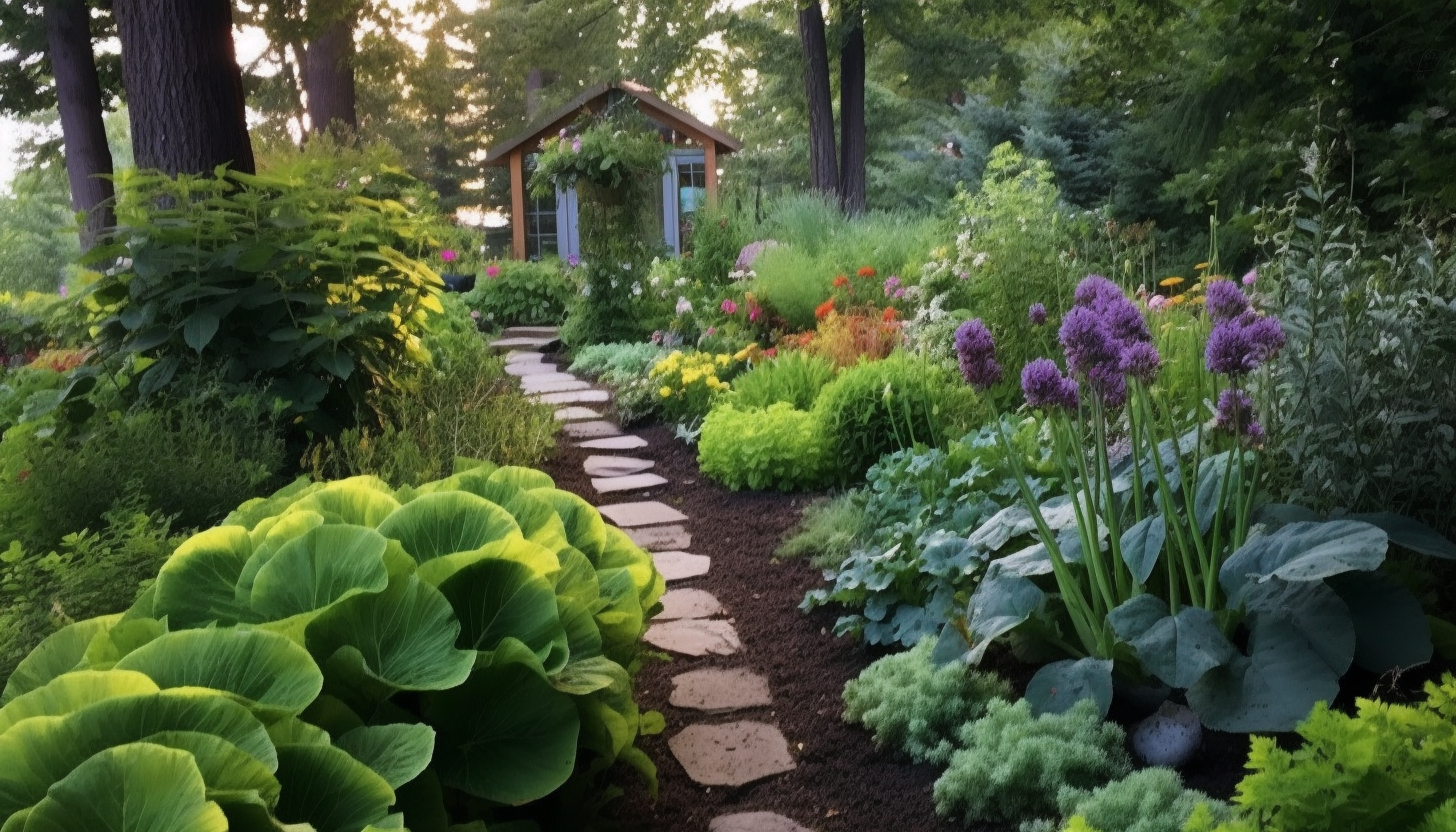P
May 28, 2023
Making Your Garden More Alkaline: Tips for Creating a Healthy Environment
#Alkaline Garden
#Creating a Healthy Environment
#Soil Health
#Soil pH
#Plant Growth
#Nutrient Retention
#Root Development
#Disease Prevention
#Pest Control

making-garden-more-alkaline-thumbnail
Understanding the Alkaline Garden
An alkaline garden is a garden that supports a balanced and healthy ecosystem by promoting the growth of plants and microorganisms that thrive in an alkaline environment. The concept of an alkaline garden is relatively new, but it has already shown tremendous potential in improving the overall health of the soil and the plants growing in it. The benefits of an alkaline garden go beyond the quality of the plants. It also promotes the health of the soil microbes, increases nutrient retention, improves root development, and can even provide protection from certain diseases and pests.
So, what exactly is an alkaline garden? An alkaline garden is a garden that supports a balanced and healthy ecosystem by promoting the growth of plants and microorganisms that thrive in an alkaline environment. The concept of an alkaline garden is relatively new, but it has already shown tremendous potential in improving the overall health of the soil and the plants growing in it. The benefits of an alkaline garden go beyond the quality of the plants. It also promotes the health of the soil microbes, increases nutrient retention, improves root development, and can even provide protection from certain diseases and pests.
Understanding Soil pH
Before we discuss how to make your garden more alkaline, it is important to understand what soil pH is and how it impacts the health of your garden. Soil pH is a measure of the acidity or alkalinity of the soil. It ranges from 1 to 14, with 1 being highly acidic, 7 being neutral, and 14 being highly alkaline. The ideal pH for most plants is around 6.5, which is slightly acidic. However, some plants prefer a more alkaline environment.
There are several ways to determine your soil's pH. One of the simplest methods is to take a sample of your soil and place it in a glass of water. After a few hours, you'll be able to see the color of the water. Darker colors indicate a more acidic soil, while lighter colors indicate a more alkaline soil. Another method involves using a pH meter, a device that measures the soil's pH directly.
Soil Health and Soil pH
Soil health is an essential component of an alkaline garden. Healthy soil is filled with beneficial microbes that promote plant growth and help to retain nutrients. It also has excellent structure and can hold water and nutrients effectively. All of these qualities are dependent on the pH of the soil.
As we've discussed, the pH of the soil determines the health of the soil microbes. Microbes in an acidic soil will be different than those in an alkaline soil. The microbes in an acidic soil are often less efficient at decomposing organic matter and extracting nutrients from the soil. In an alkaline soil, the microbes are more efficient at these tasks, resulting in healthier soils and plants.
Creating an Alkaline Garden
Now that we understand how pH impacts the health of our garden, let's discuss how we can create an alkaline environment. The first step is to determine the pH of your current soil. If it's too acidic, you may need to add lime to raise the pH. If it's too alkaline, you may need to add organic matter to lower the pH. However, before you make any changes to your soil, it's important to test it to ensure you're making the right adjustments.
Adding organic matter, including compost, mulch, or manure, can help to increase the pH of your soil. The organic matter absorbs chemicals in the soil and releases them slowly, creating a more alkaline environment. Aerating your soil can also help to increase the pH. Aeration exposes fresh, unoxidized soil, which can help the soil to become more alkaline.
Root Development and Alkaline Soil
One of the most significant benefits of an alkaline garden is the improved root development. The growth of roots is directly affected by the pH of the soil. In an acidic soil, roots can become stunted and twisted. In an alkaline soil, roots can become more straight and healthy, with better nutrient and water uptake.
The pH of the soil can also affect the structure of the soil, which can impact root development. In an acidic soil, the soil particles can be smaller and tightly packed. This can make it harder for roots to penetrate and grow. In an alkaline soil, the soil particles can be larger, creating a looser and more porous environment that is easier for roots to navigate.
Disease Prevention and Alkaline Soil
An alkaline environment can also provide protection from certain diseases. Some plant diseases thrive in acidic soils, while others prefer more alkaline environments. By creating an alkaline environment, you can discourage certain diseases and promote the health of your plants.
There are several ways to prevent disease in an alkaline garden. One of the most effective is to rotate your plants. This ensures that the same disease-causing microbes don't keep returning to the same plant. Another method is to use companion plants, which can help to deter or even repel certain pests and diseases. Finally, maintaining a healthy, balanced soil can also deter disease, as it provides a nutrient-rich environment that pests and pathogens find unappealing.
Final Thoughts
An alkaline garden is a great way to promote the health of your soil and plants. By adjusting the pH of your soil, you can improve root development, promote soil health, increase nutrient retention, and reduce the risk of certain diseases and pests. Remember, the pH of your soil is a dynamic and ever-changing part of your garden. It's always changing, responding to the things you add to it and the things it absorbs.
However, with a little research and care, you can create a garden that promotes a balanced and healthy ecosystem. Remember, the pH of your soil is a dynamic and ever-changing part of your garden. It's always changing, responding to the things you add to it and the things it absorbs. However, with a little research and care, you can create a garden that promotes a balanced and healthy ecosystem. Remember, the pH of your soil is a dynamic and ever-changing part of your garden. It's always changing, responding to the things you add to it and the things it absorbs.


